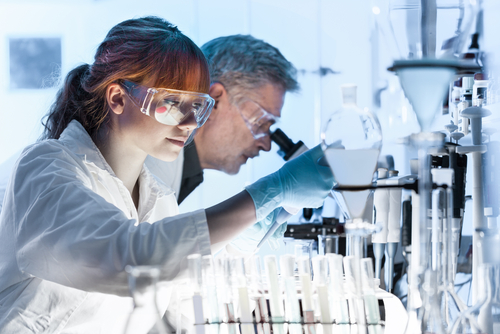Parkinson’s UK Invests £1M More Into Work to Protect Mitochrondria

The nonprofit Parkinson’s UK announced an additional £1 million (about $1.3 million) award to NRG Therapeutics, advancing its work into potential treatments that can rescue damaged mitochrondria — the cellular component responsible for energy production — in brain cells.
This funding is part of a £4 million annual investment that the nonprofit group, which supports research into Parkinson’s disease, has pledged to make through its Virtual Biotech program that fosters work into promising potential therapies.
The group partnered with NRG, which is developing small molecules able to enter the brain and protect mitochondria, with an initial £1 million program award in July 2019.
A hallmark of Parkinson’s disease pathology is the death of neurons responsible for producing the neurotransmitter dopamine. Neurotransmitters are chemical messengers responsible for communication between cells of the nervous system.
It is thought their loss is caused by insufficient energy production and the release of toxic chemicals by faulty mitochondria, leaving neurons unable to work as they should.
By targeting the mitochondria of dopamine-producing neurons, researchers aim to restore energy production and ultimately protect vulnerable neurons from dying.
In this project’s first year, researchers at NRG and Parkinson’s UK designed small molecules that can enter the brain and reach the mitochondria of neurons.
“It’s extremely encouraging to see the progress we’ve made in the first year of work with NRG Therapeutics, which is why we’re pleased to be able to invest in this project further,” Arthur Roach, PhD, director of research at Parkinson’s UK, said in a press release.
Researchers now aim to further develop these molecules, improving their ability to enter brain cells and running studies to determine whether they can influence mitochondria in ways that protect these cells and treat Parkinson’s disease.
Their ultimate goal is to develop a treatment based on this work that can enter clinical testing.
“In this crucial next phase of the project, we aim to improve the ability of these molecules to enter the brain and to investigate their effects in brain cells in the lab,” Roach said. “This will take us one step closer to developing a drug that could go forward to be tested in people with Parkinson’s.”
“With 145,000 people living with Parkinson’s in the UK and the charity on the brink of so many potential breakthroughs, we cannot afford to slow down now,” Roach said.
Parkinson’s UK reports having invested “over £93 million into research that has led to new therapies, better diagnosis and countless breakthroughs” since its founding in 1969.






